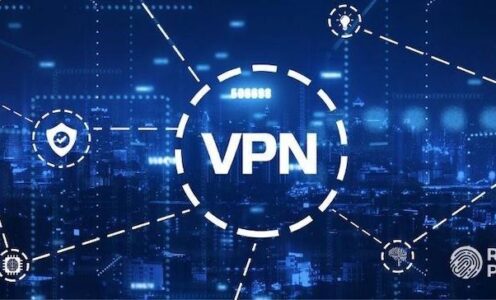Disclaimer: Using the following links help support the Blog.

Using a VPN (Virtual Private Network) while traveling internationally can help protect your online privacy and security. It allows you to create a secure connection to another network over the internet, encrypting your data and hiding your IP address. Here’s a guide to using VPNs while traveling:
- Choose a Reliable VPN Provider: Research and select a reputable VPN provider that offers reliable servers in various locations. Consider factors like server coverage, speed, security protocols, and customer support.
- Install the VPN Software: Download and install the VPN software on your device(s) before your trip. Most VPN providers offer applications for various platforms, including Windows, macOS, iOS, Android, and more.
- Familiarize Yourself with the VPN Settings: Once installed, explore the VPN settings and customize them according to your preferences. You can usually configure options such as server selection, protocol choice, and automatic connection features.
- Connect to a VPN Server: Launch the VPN application and connect to a server. Choose a server location close to your physical location for better speed or select a server in a specific country to bypass geo-restrictions or access region-locked content.
- Verify the VPN Connection: After connecting, confirm that your VPN is active. Most VPN software will display a notification or an icon indicating that you’re connected to a VPN server.
- Test the VPN Connection: Visit a website to ensure that your VPN is working correctly. Check your IP address before and after connecting to confirm that it has changed.
- Use Public Wi-Fi Securely: When connecting to public Wi-Fi networks, especially in cafes, airports, or hotels, always use your VPN. This encrypts your internet traffic, protecting it from potential hackers or snoopers on the same network.
- Access Geo-Restricted Content: If you encounter websites or services that are blocked or limited based on your location, switch to a server in a different country using your VPN. This will make it appear as if you’re browsing from that location, allowing you to bypass restrictions.
- Ensure VPN Auto-Connect: Configure your VPN application to automatically connect when you start your device or join a new network. This ensures that your connection is always secured without manual intervention.
- Be Mindful of Local Laws: Research and familiarize yourself with the VPN regulations and laws of the country you’re visiting. Some countries may restrict or ban the use of VPNs, while others may require you to comply with specific rules.
- Use Split Tunneling (Optional): If your VPN supports split tunneling, you can choose which applications or websites use the VPN and which ones access the internet directly. This can be useful if you need to access local services or if the VPN affects certain applications negatively.
- Keep Your VPN Software Updated: Regularly update your VPN software to benefit from the latest security patches and improvements. This ensures that you have the most secure and reliable connection while traveling.
There are three VPN services that I personally use and recommend. All three are similar but have some added features an price points. All three of these options are great for keeping your data secure while you travel and browse the internet internationally!
Remember, while a VPN enhances your online privacy and security, it does not guarantee complete anonymity. Always follow best practices for online safety, such as using strong passwords, avoiding suspicious websites, and keeping your devices updated with the latest security patches.
Disclaimer: Using the following links help support the Blog.
